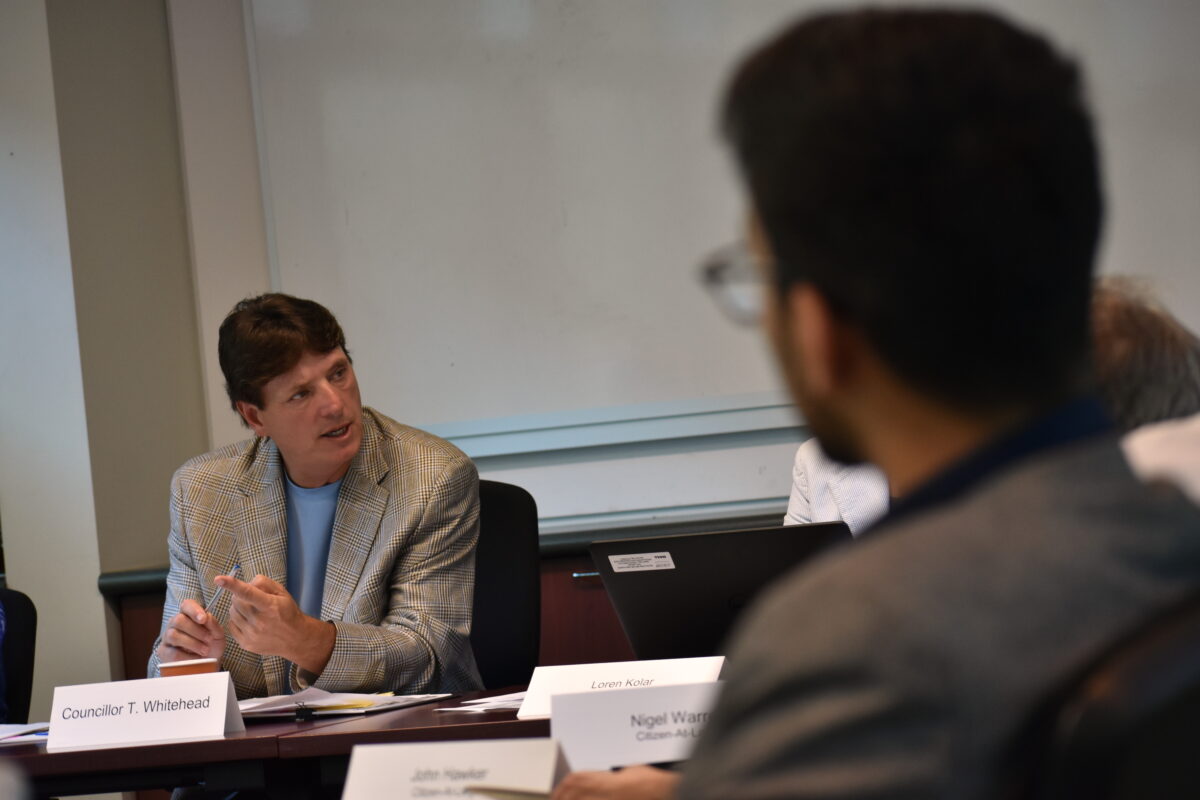Hamilton Housing Help Centre Executive Director Larry Huibers summed up this meeting of Hamilton’s Rental Housing Committee. An exasperated Huibers told his fellow committee members “we’re dancing on the head of a pin” as once again the committee debated in circles with no agreement, and struck a working group to once again debate if they’ll recommend a licensing regiment for rental housing in Hamilton.
The meeting started with debate about the rules of debate, and procedures. Following, a delegation from Mike Wood of ACORN Canada’s Hamilton Chapter calling for the implementation of city-wide licensing and inspections for all apartment buildings with more than ten units or three storeys or greater in size.
Wood’s idea is the opposite of the 2013 proposal for the City to regulate rental buildings with six or less units – the idea at the time being that large landlords represent a minority of the complaints the City is receiving from tenants.
Once the delegation ended, committee member Steve Calverley asked the delegate if he supported a bylaw similar to Toronto’s rental housing regulations, and the licensing fee of $10.60 per unit per year.
Member Paul Martindale, who owns local rental firm Wink Properties, focused his questions on ACORN itself. He questioned the delegate on ACORN’s funding sources, membership numbers, and tactics.
Martindale put particular emphasis on criticizing ACORN’s support for “illegal” rent strikes. An on-going rent strike in Toronto’s Parkdale has entered its second month as residents fight right increases, and over building conditions. The rent strike is being supported by Parkdale Community Legal Services. Both tenant and renter associations across the province are watching the strike closely.
The questions turned to debate about the cost of licensing, Huibers argued that the City is already charging multi-residential buildings a higher tax rate, while providing less services, therefore the City should be providing licensing and inspections without creating fees that may be passed onto tenants.
Arun Pathak, president of the Hamilton and District Apartment Association, warned that any fees will be passed onto tenants, suggesting that some units could see an increase of $100 per month if that is what is needed to immediately cover the cost of licensing for an entire building in one unit.
Calverley countered him, saying that he’s seen some of the living conditions in Ward 3 when going door-to-door, and “it’s time we got on with this”. He said the cost in Toronto is around $12 per unit (it is $10.60) per year, and that attempts to argue that licensing will mean skyrocketing rents is false.
The committee then debating if a bylaw would be effective in addressing bad landlords, if people will be displaced by enforcing standards, and how to go about writing a bylaw.
Ultimately, after two hours of meeting, the Rental Housing Committee voted to narrow their focus to only Wards 1 & 8, create a sub-committee to write a “pilot” bylaw, and to tour other municipalities with rental housing bylaws.
Ward 1 and 8 are the neighbours housing Hamilton’s two public post-secondary institutions and students make up the majority of renters in those areas.
No timelines were set for meetings, reports, or anything. Basically, the committee is back to 2013.
Hamilton Rental Housing Committee "Dancing on the Head of a Pin"

